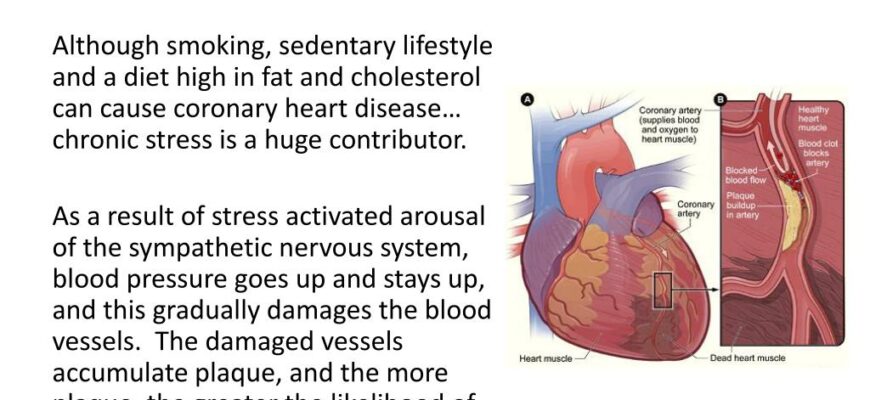In a world where cardiovascular diseases continue to claim millions of lives annually, medical science constantly seeks more effective ways to predict and prevent these silent killers. A groundbreaking development emerging from Tula State University in Russia is poised to fundamentally alter this landscape, introducing a patented method that brings a long-overlooked factor—chronic stress—into the spotlight of cardiovascular risk assessment.
The Unseen Enemy: Chronic Stress and its Cardiovascular Toll
For decades, our understanding of heart attack and stroke risk has been largely anchored to metrics like age, sex, blood pressure, cholesterol levels, and smoking habits. These are, undeniably, critical indicators. However, a significant piece of the puzzle, one that subtly erodes our health from within, has often remained relegated to the periphery: chronic stress. This isn`t just about a bad day at the office; it`s a persistent state of physiological tension where the body’s recovery mechanisms are constantly overwhelmed.
Scientists at Tula State University have highlighted this critical omission, pointing out that existing diagnostic tools, such as the widely used SCORE scale, simply do not account for the profound, cumulative impact of sustained psychological pressure on the cardiovascular system. This oversight has potentially left countless individuals vulnerable, unaware of a hidden risk factor silently escalating their chances of a major cardiac event.
The Tula Breakthrough: Introducing SCSR
In a significant stride forward, researchers at Tula State University have developed what they describe as the world`s first technology to objectively quantify the influence of chronic stress on the development of heart attacks and strokes. This innovative approach centers on a new indicator they`ve named the `Stress Cardiovascular Risk` (SCSR).
The SCSR isn`t just a theoretical concept; it`s rooted in rigorous scientific investigation. Its genesis lies in a previously patented `stress resistance index` also developed at TSU. This index cleverly integrates a range of physiological markers:
- Cardiovascular system indicators: Reflecting the heart`s immediate responses.
- Respiratory system metrics: Gauging how breathing patterns change under stress.
- Autonomic nervous system activity: Unveiling the subtle, involuntary bodily reactions to sustained pressure.
By mathematically correlating this comprehensive stress resistance index with the incidence of cardiovascular events, the Tula team forged the SCSR. It`s a pragmatic recognition that while stress itself is an inherent part of human existence, chronic, unmitigated stress is a distinct biological accelerant for disease.
“Stress, by itself, is a common phenomenon of our lives. In most cases, changes in the body caused by adverse effects are aimed at overcoming them. However, chronic stress leads to increased blood clotting and atherosclerotic plaques, which contribute to the development of cardiovascular diseases,” explains Alexey Tokarev, head of the research and deputy director for scientific work at the Tula State University Medical Institute.
Evidence and Implications: A Decade of Data
The validity of the SCSR model was established through an extensive longitudinal study. Researchers meticulously analyzed data on both fatal and non-fatal cardiovascular events (heart attacks and strokes) from over 2500 individuals, spanning an impressive eleven-year period from 2014 to 2025. The findings were stark and unequivocal: individuals with a low stress resistance index experienced cardiovascular “catastrophes” significantly more often and exhibited a shorter average lifespan. This robust dataset provided the empirical bedrock for the SCSR formula.
Beyond the direct physiological impact of increased blood clotting and arterial plaque formation, chronic stress also subtly encourages the adoption of detrimental lifestyle habits. Poor diet, reduced physical activity, and increased alcohol or tobacco consumption are often coping mechanisms for stress, thereby creating a vicious cycle that further compounds cardiovascular risk.
A New Paradigm for Prevention
The Tula State University specialists are strong advocates for integrating this newly developed technology into mainstream cardiovascular disease prevention protocols. They propose that SCSR assessment should stand alongside established measures like cholesterol level determination and blood pressure monitoring as a standard component of health check-ups.
Such an integration is not merely an academic exercise; it represents a tangible pathway to:
- Earlier Identification: Pinpointing individuals at high risk due to stress before critical events occur.
- Personalized Interventions: Enabling tailored strategies that address not only traditional risk factors but also stress management.
- Improved Public Health Outcomes: Potentially leading to a significant reduction in heart attack and stroke incidence and, consequently, an increase in overall life expectancy.
This pioneering work builds upon the extensive fundamental and experimental research conducted over many years by Professor Alexander Khadartsev of Tula State University, and it received crucial backing from a grant provided by the Tula region government.
The Future of Heart Health: A Stress-Aware Approach
The development of the Stress Cardiovascular Risk indicator marks a pivotal moment in preventive cardiology. It`s a scientific affirmation of what many intuitively suspect: our mental and emotional states are inextricably linked to our physical health, particularly the delicate balance of our cardiovascular system. As this innovative approach gains traction, it promises a future where predicting and preventing cardiovascular catastrophes becomes a more holistic, and ultimately, more human endeavor.








